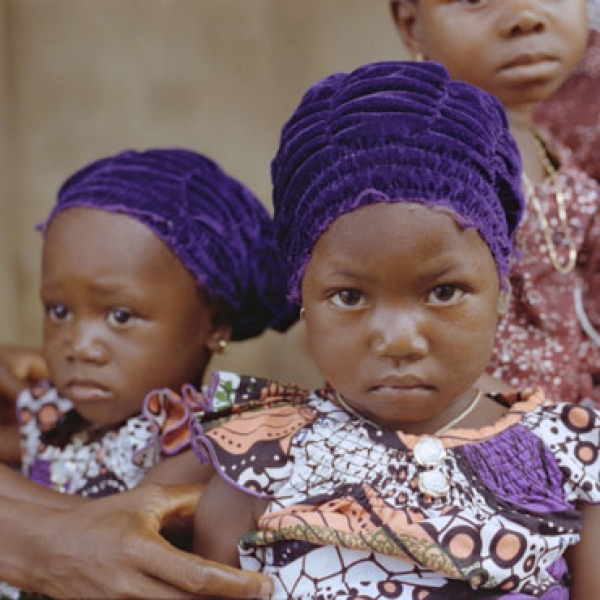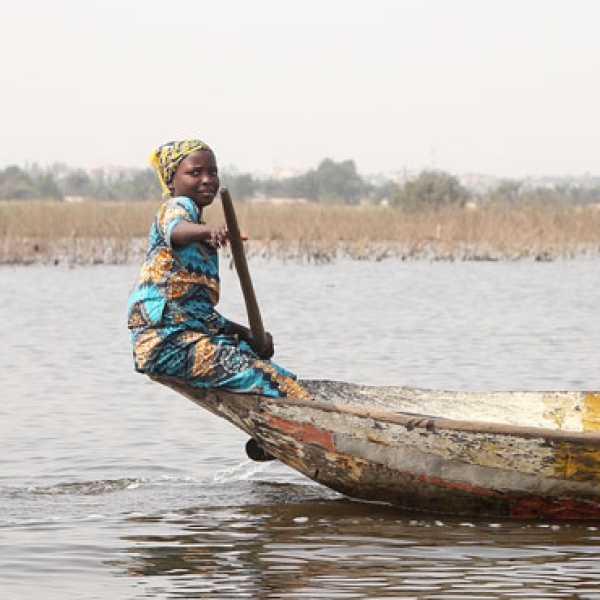The Republic of Benin, located on the coast of West Africa, is one of the most stable countries in the region and has seen steady economic growth in recent years. At the same time, it has untapped development potential, ranking 166 out of 191 countries on the 2021 Human Development Index. The estimated population of 13.4 million is predominantly rural and young, with 65% of the population being under age 20.
Benin’s food system is largely rural and traditional. The agricultural sector, predominantly small farms with low yields, employs around 30% of the working population and contributes 27% of the country’s Growth Per Person (GDP). Benin performs relatively well in terms of ensuring its population has an adequate quantity of food. The prevalence of undernourishment, defined as insufficient energy intake, is 9.9%compared to a regional average of 14.3%. 9.6% of Beninese are food insecure, largely impacting vulnerable rural households. This means, they don’t have regular access (physically and economically) to sufficient safe and nutritious food that meets their dietary needs and food preferences for an active and healthy life. Food insecurity remains a concern, largely impacting vulnerable rural households. These negatives have been made worse by the combination of the long-term impacts of COVID, climate change, and the current economic situation, particularly inflation. There is little sign of amelioration of these underlying factors.
In addition, Benin faces considerable challenges ensuring people consume high-quality diets with sufficient diversity of nutrient-dense foods. Food production and diets tend to be over-reliant on cereals, roots, and tubers. Most people consume inadequate amounts of nutritious non-staples including vegetables, fruits, and animal-source foods such as meat, dairy, and eggs. Only 26% of young children have minimally diverse diets.
Food affordability is a key barrier to improving diet quality in Benin: it is estimated that 83% of the population cannot afford a healthy and diverse diet. Food prices have generally risen in recent years, further impacting households’ economic access to food.
Even though the prevalence of overweight and obesity are relatively low, the country faces the double burden of malnutrition at individual, household, and community level. The nutritional situation of children under 5 remains a concern. One third of all children under the age of five are stunted (i.e., too short for their age) and over half (58%) of women are anaemic.
Improving nutrition is a priority for Benin’s government. The country has several nutrition policies and targets in place, as well as a dedicated Food and Nutrition Council under the supervision of the President’s office. Benin is also one of the few countries in Africa that has produced food-based dietary guidelines, a key step suggesting a high commitment to improving the diets and nutritional status of the population.
GAIN's contribution
The Global Alliance for Improved Nutrition (GAIN) is a Swiss-based foundation launched at the United Nations in 2002 to tackle the human suffering caused by malnutrition. Due to COVID19, conflict in Ukraine, and climate change, malnutrition and hunger have worsened significantly since 2019, reversing a decade of progress. There is growing recognition that our food systems need to change if we are to reverse these trends. Benin is one of the countries impacted by malnutrition.
GAIN’s Strategy aims to transform food systems to make healthier diets from sustainable food systems accessible to all people and especially those whose are most vulnerable to shocks. By 2027, we aim to improve the access of 1.5 billion people to nutritionally enhanced staple foods, improve the access of 25 million people to healthier diets, and support positive food system change in 10 countries. This is bold and complex, and the only way to achieve this is to work together with partners including governments, businesses, and civil society at the country and global level. These goals, and the ways of achieving them, build on our twenty-year legacy of transforming people’s lives with improved nutrition through concerted action and effective policy change.
GAIN’s work in Benin reflects the ways we are achieving our global goals. We have started operations in Benin by focusing on scaling up the impact of ongoing programmes, including creating demand for nutritious foods, supporting the provision of fortified foods, including in the country’s school meal plan, and strengthening small and medium enterprises in food supply chains through the work of the Scaling Up Nutrition (SUN) Business Network. We will continue to support the Government of Benin and other stakeholders to improve the consumption of healthier diets. We are, therefore, working with civil society, businesses, and development partners to build stronger and healthier food systems for a more equal society.


